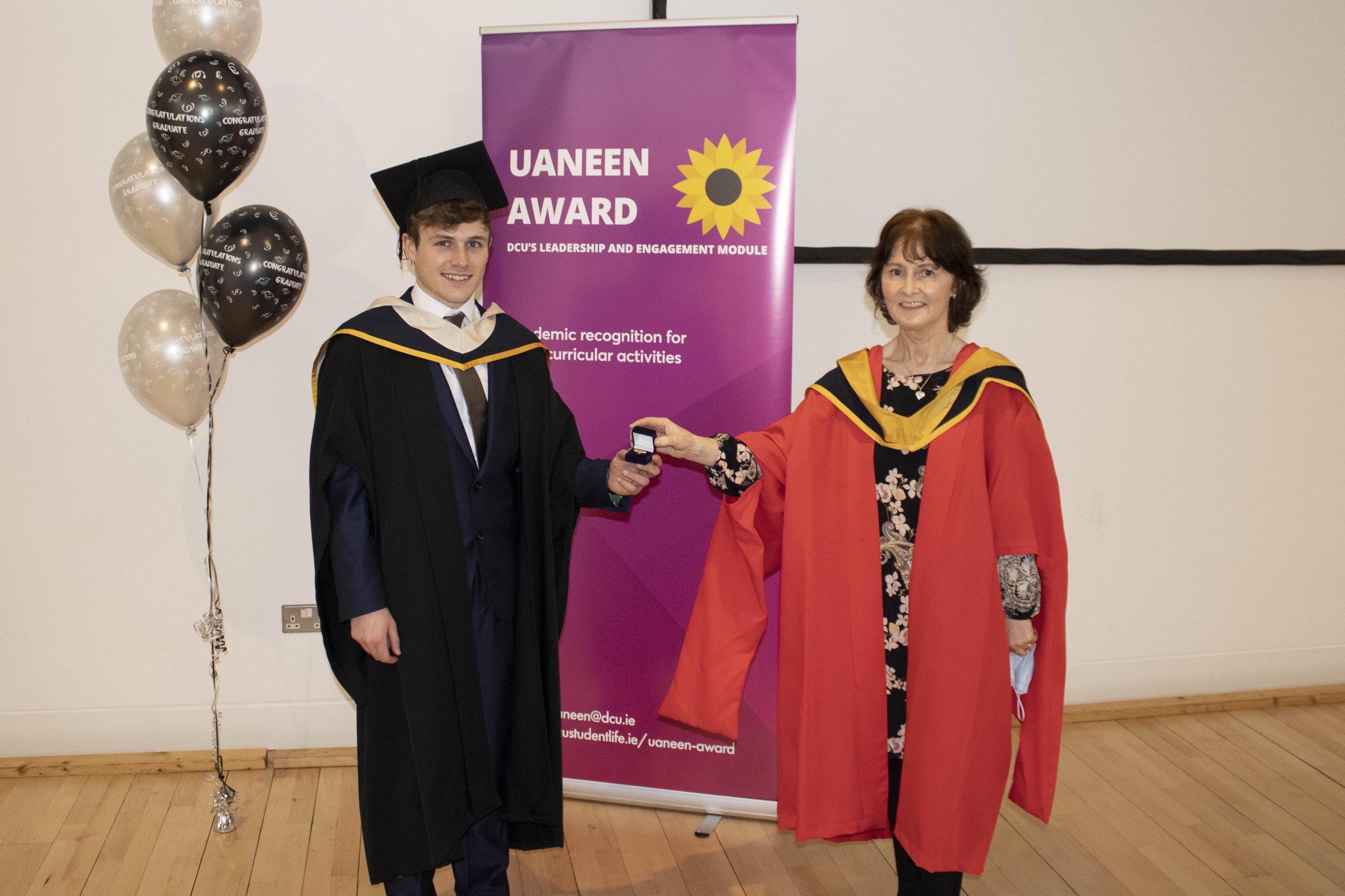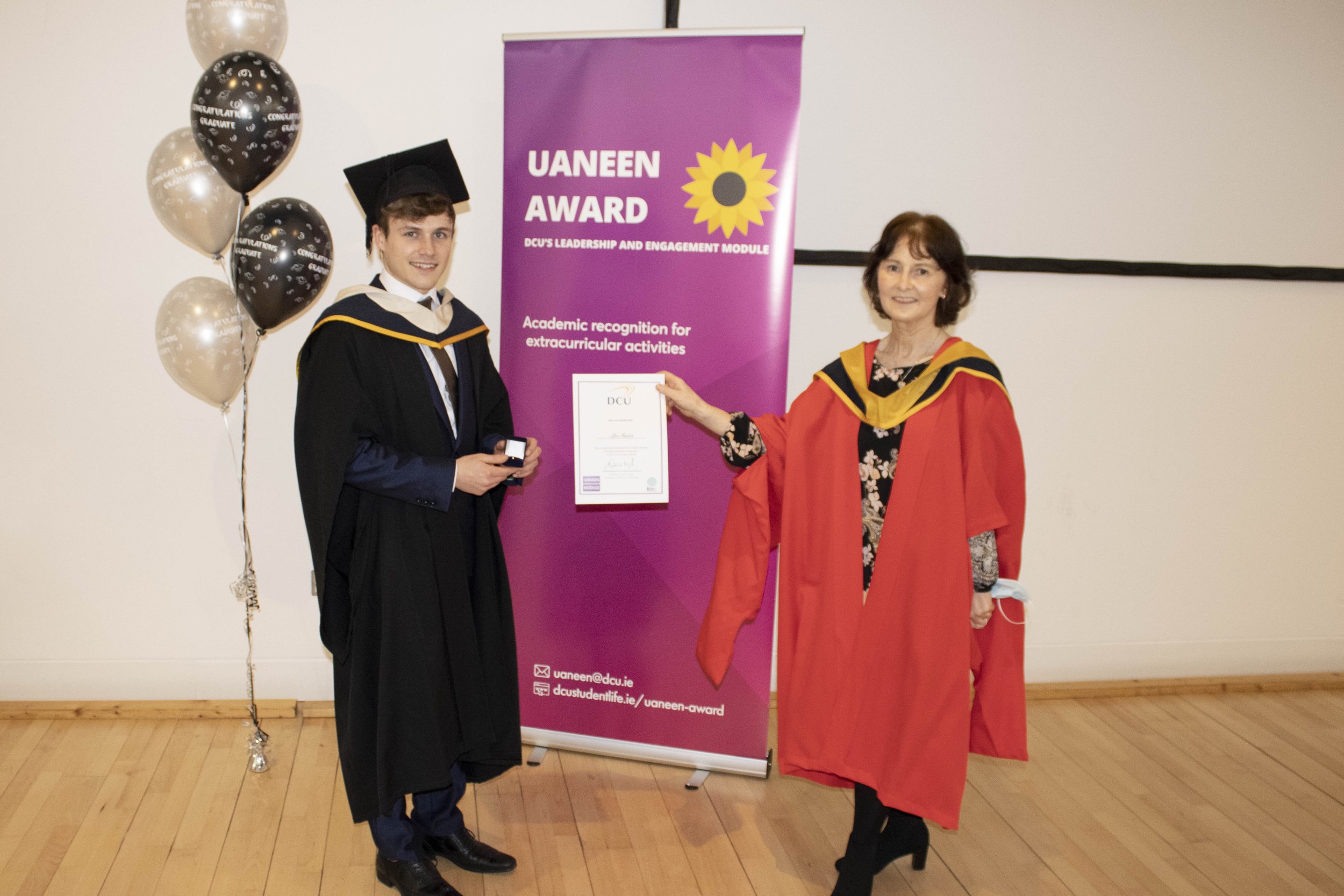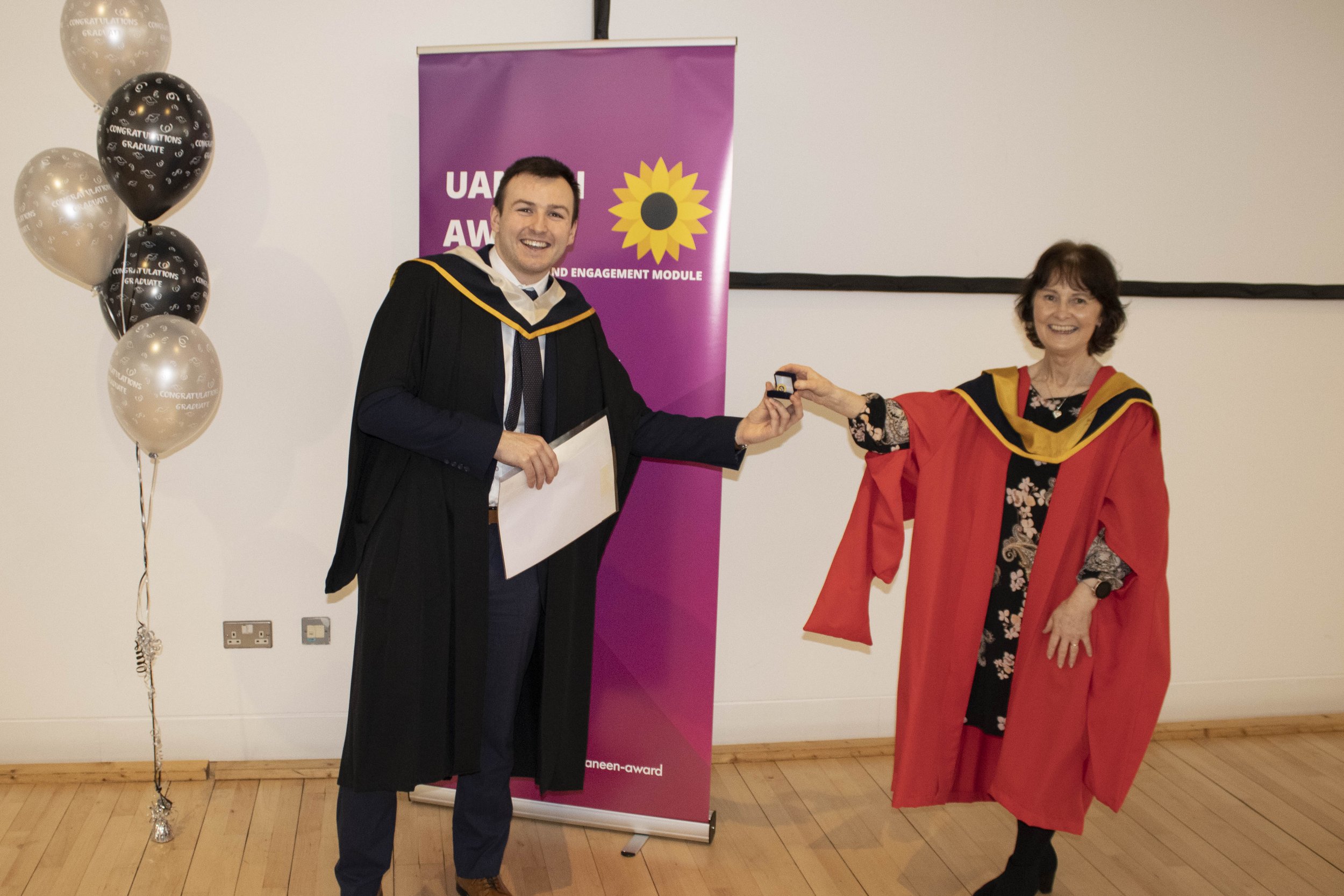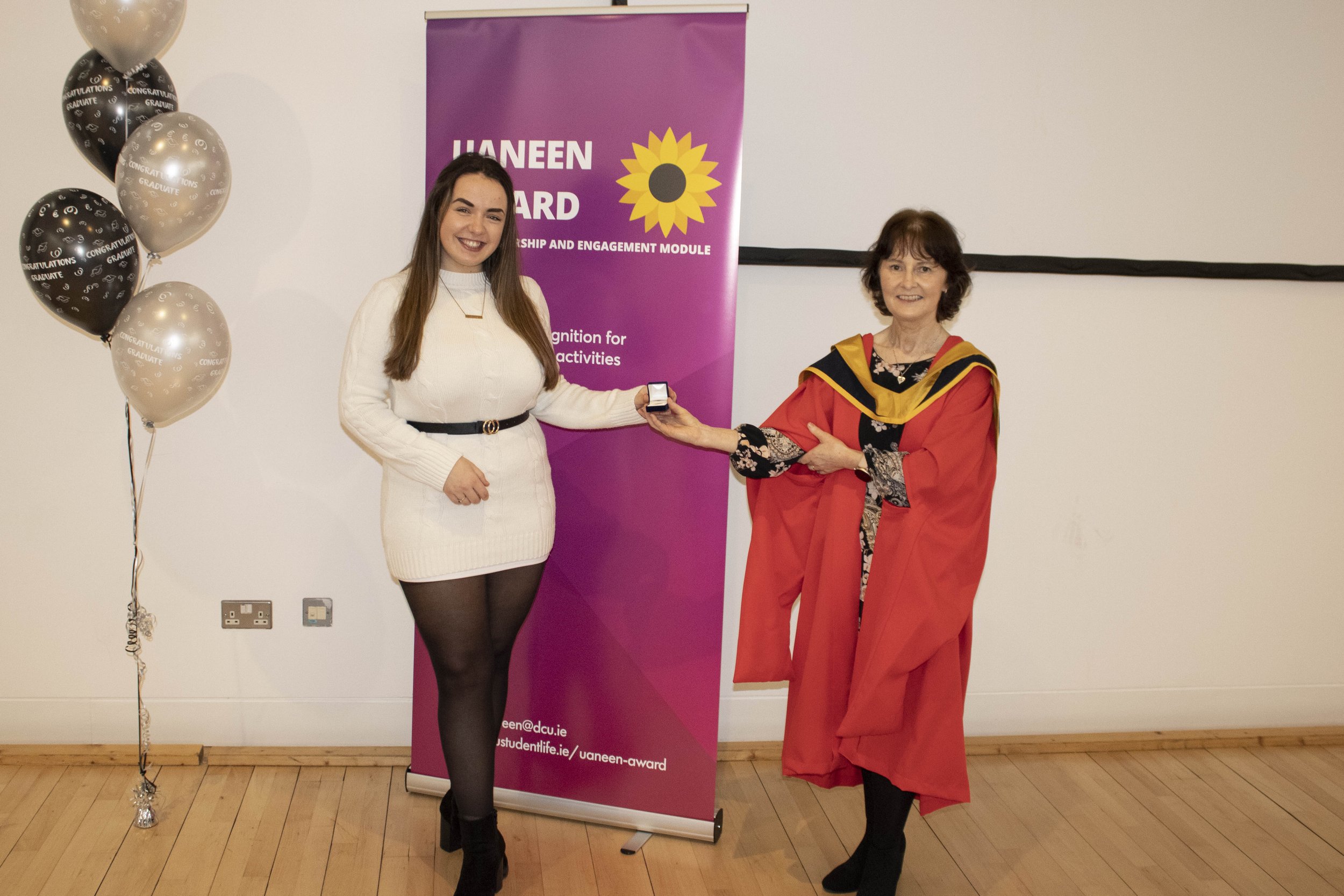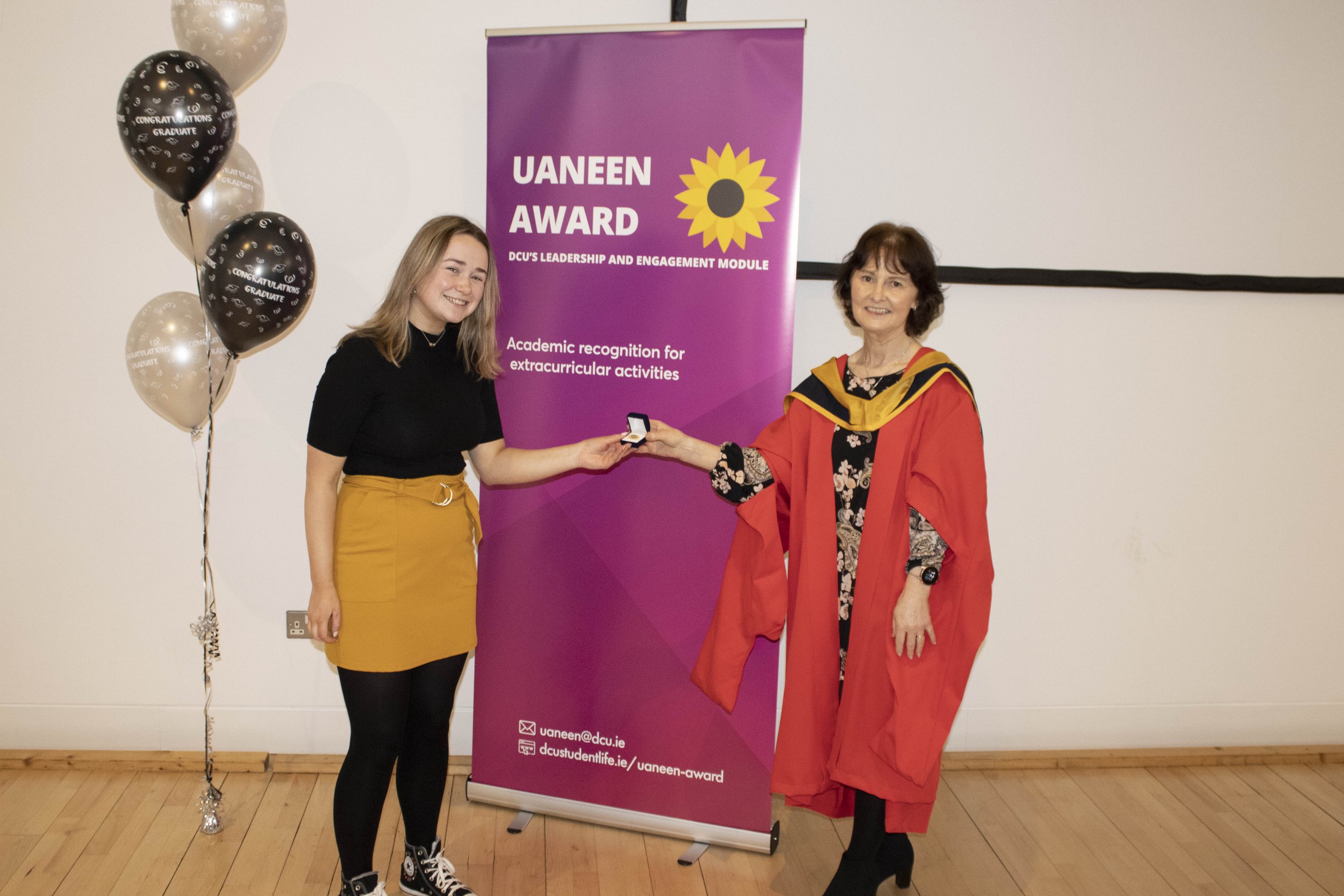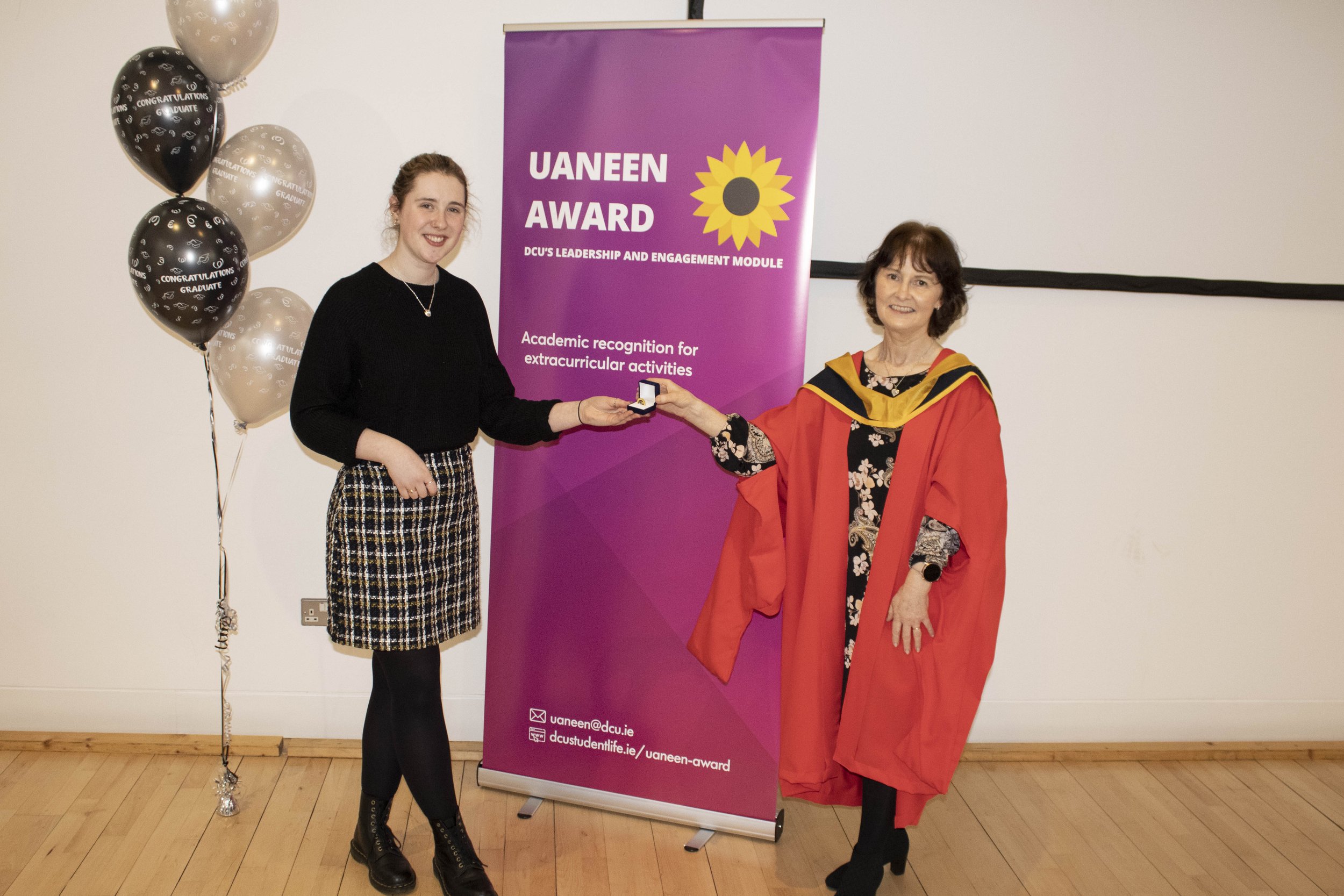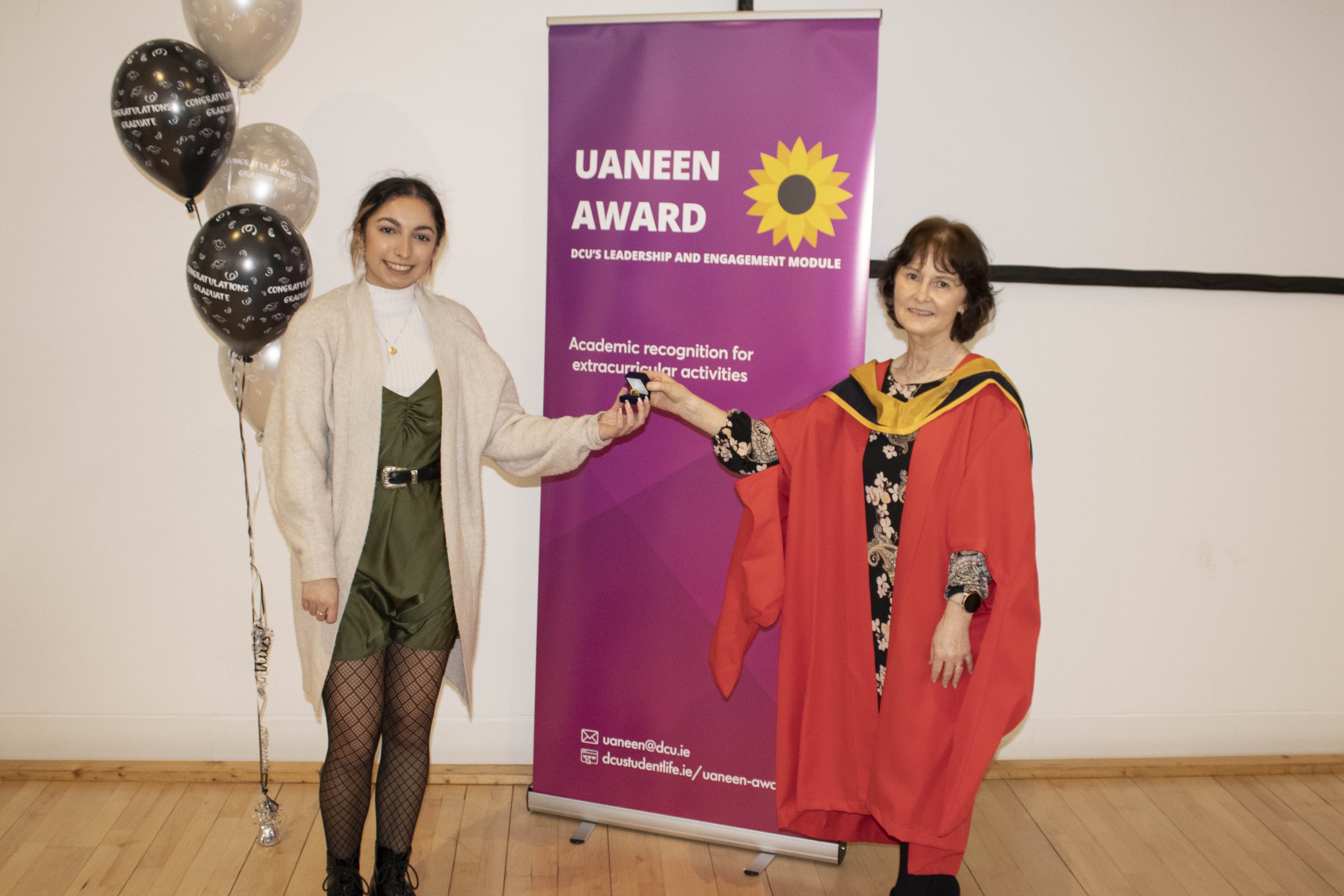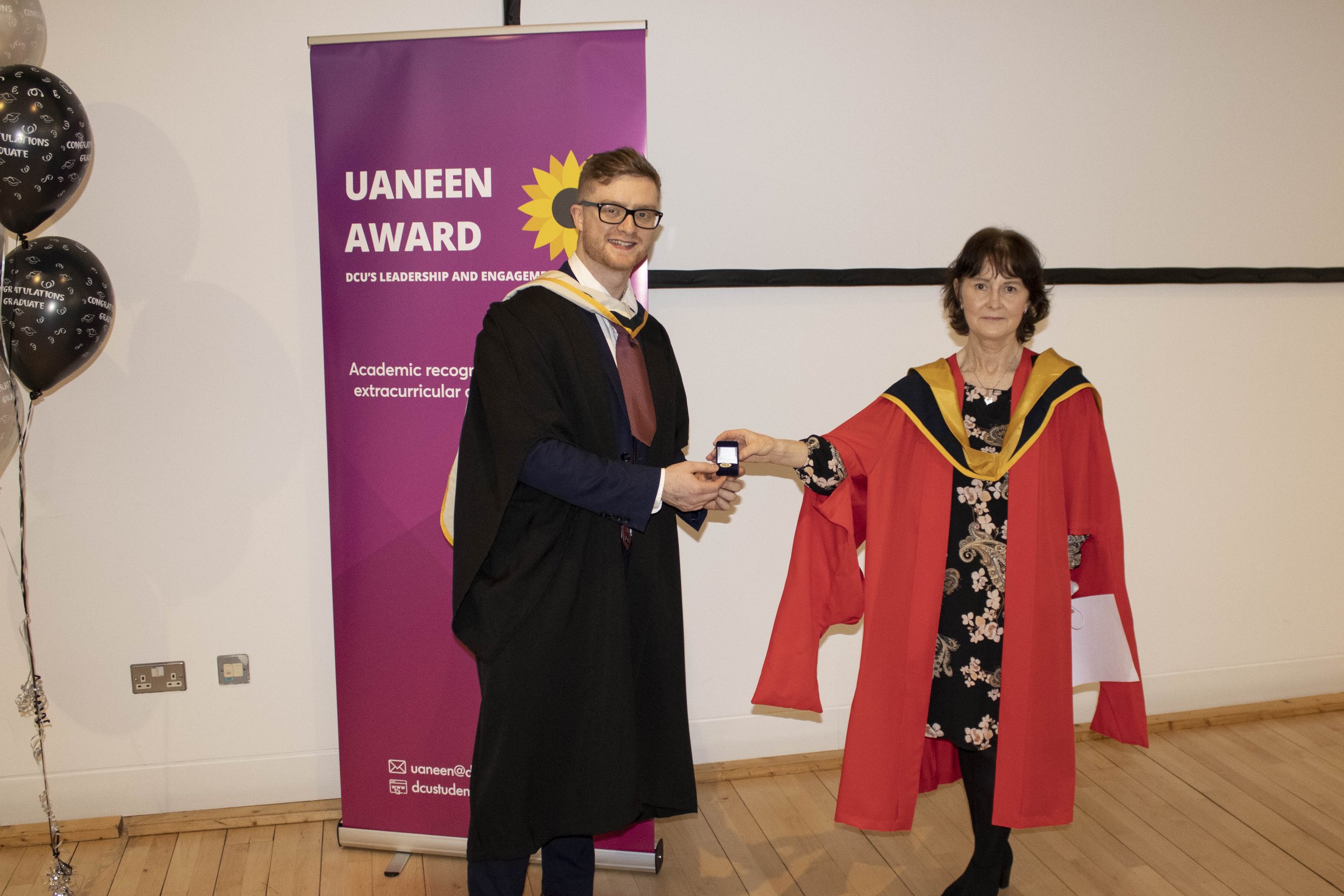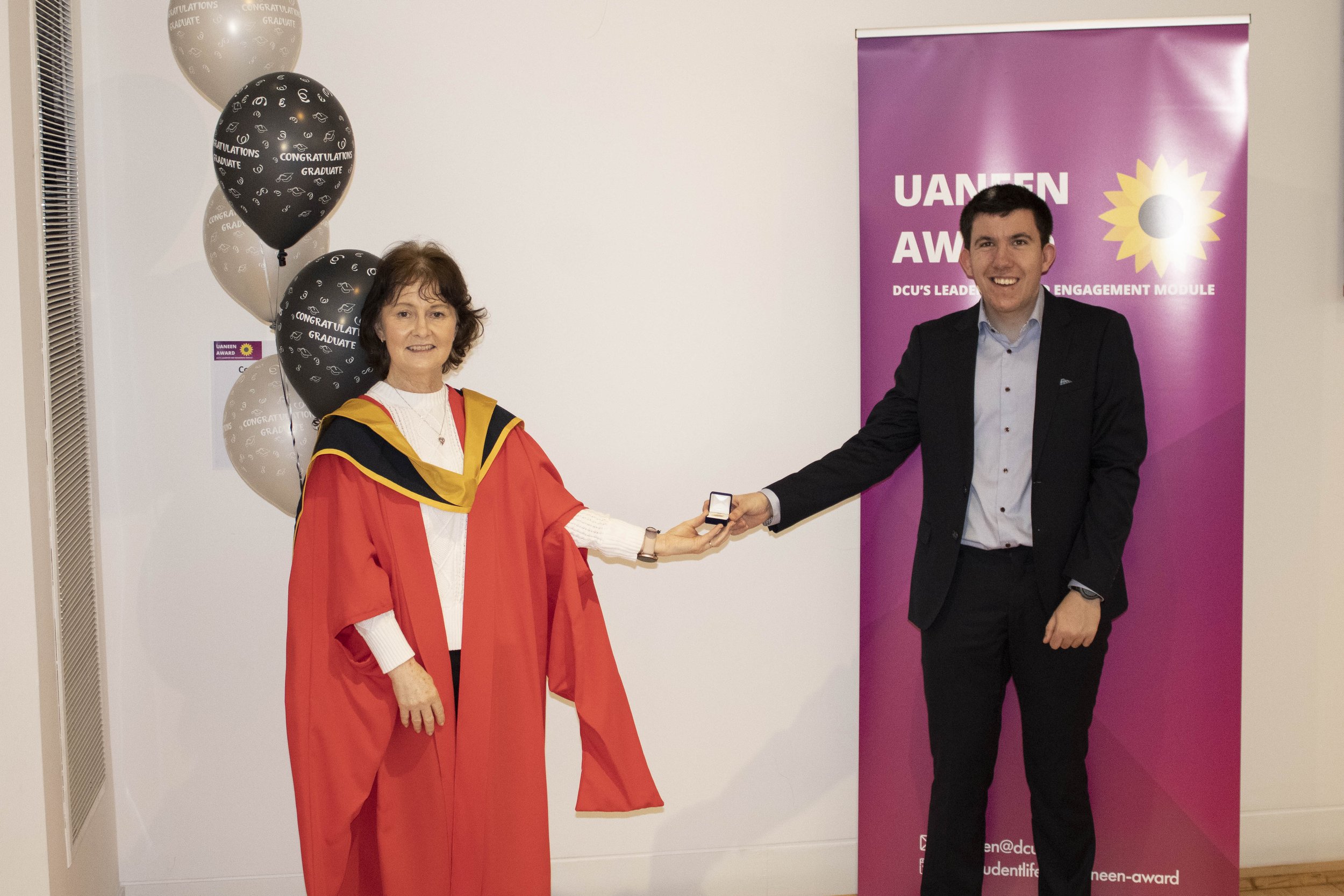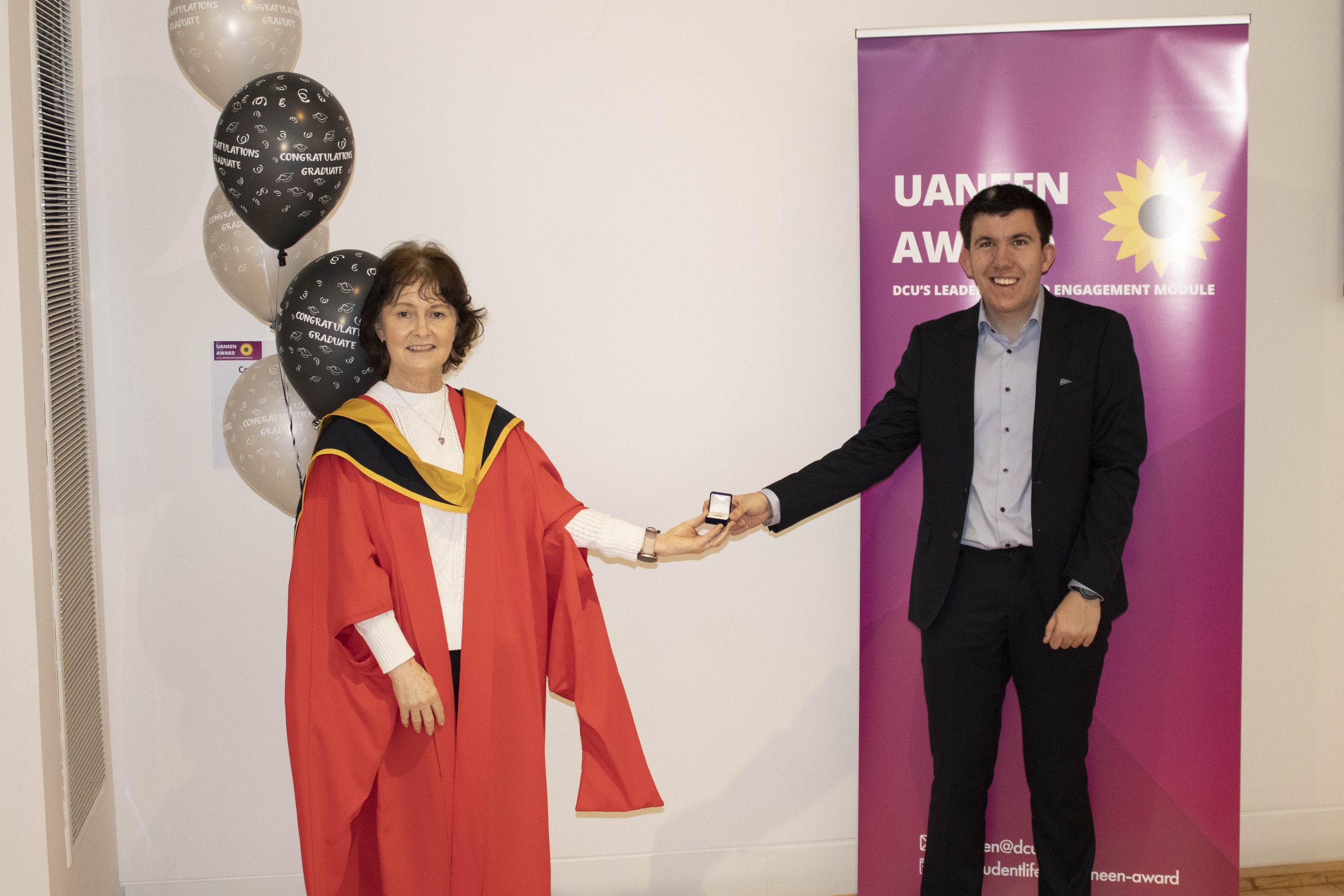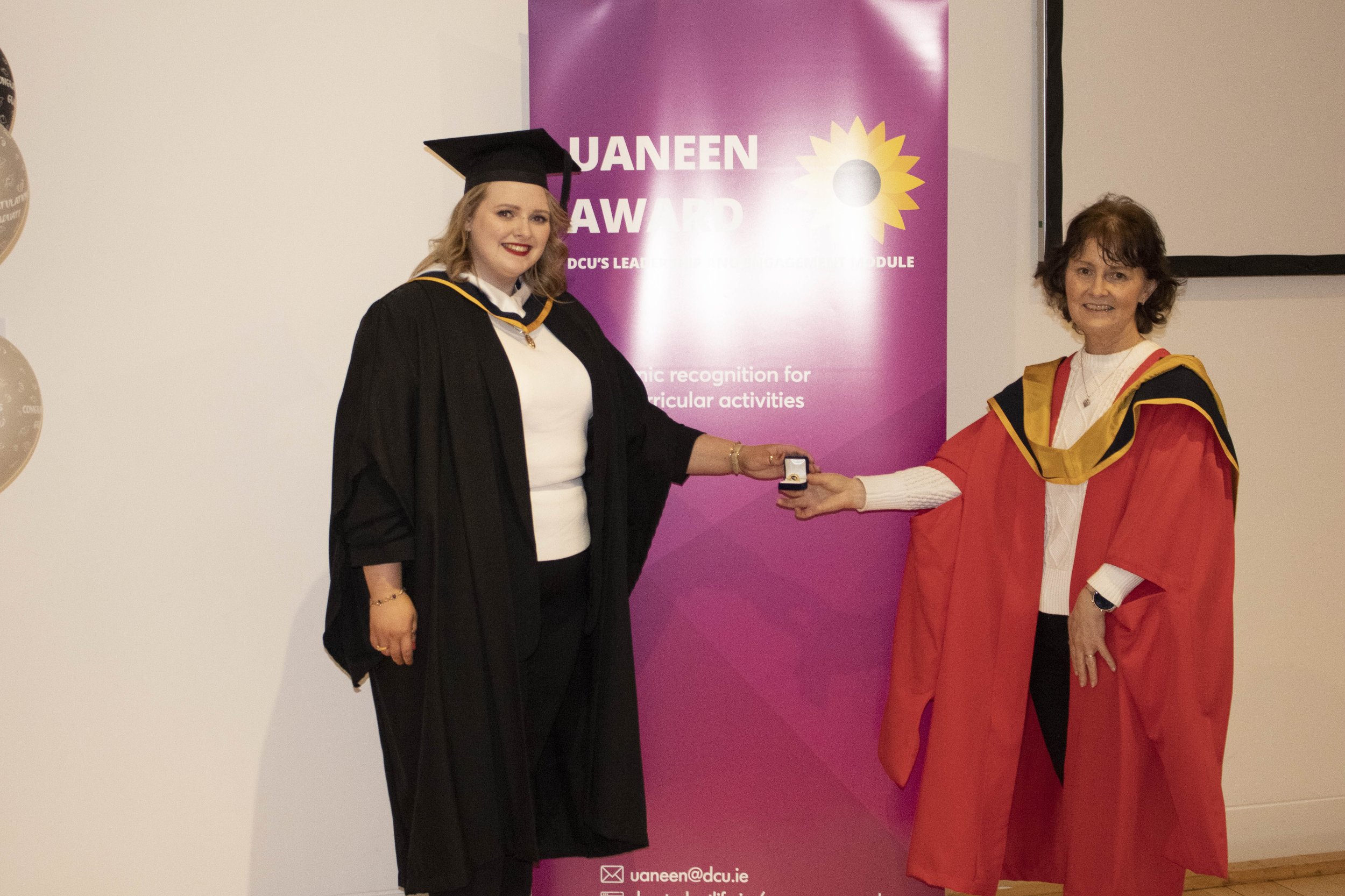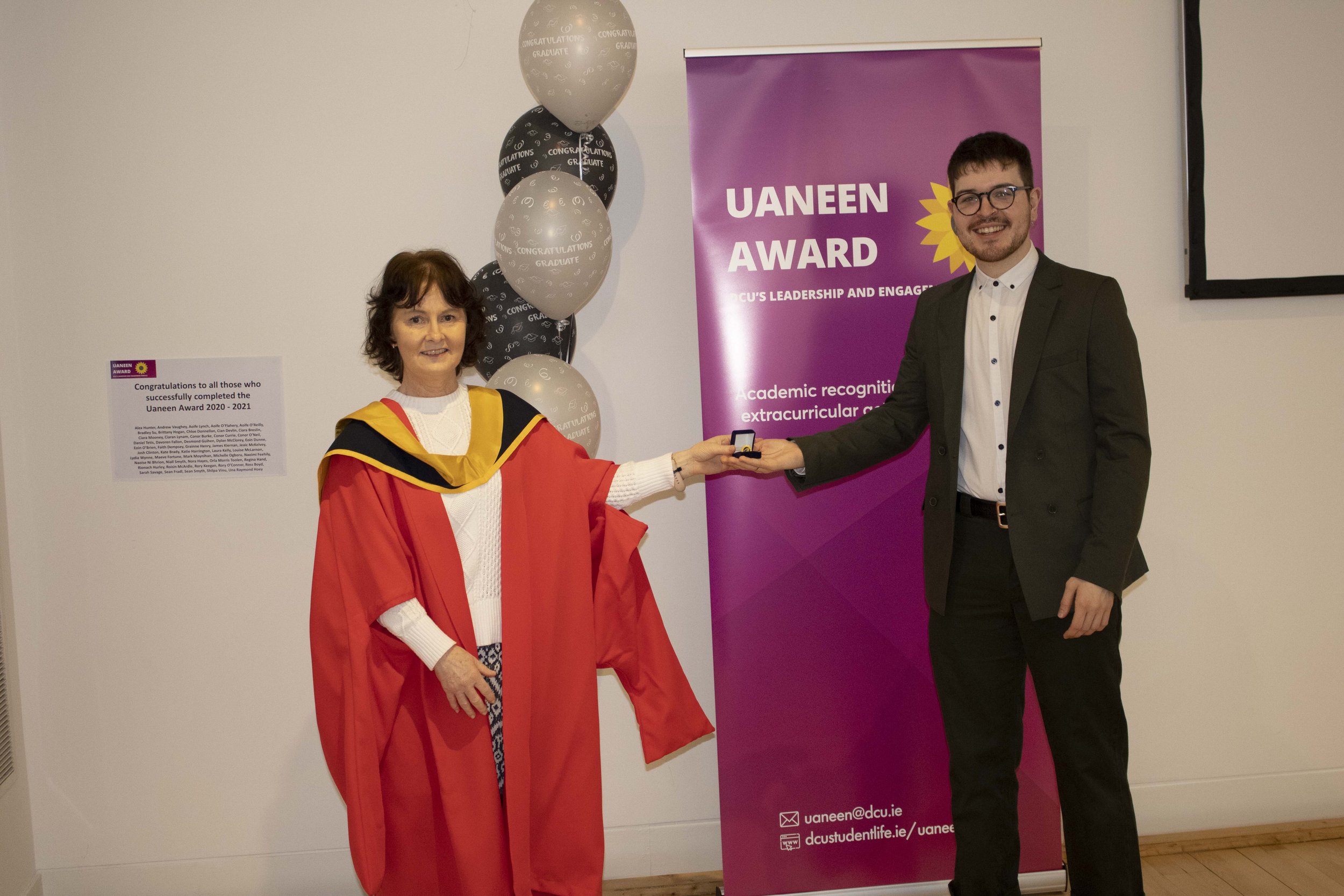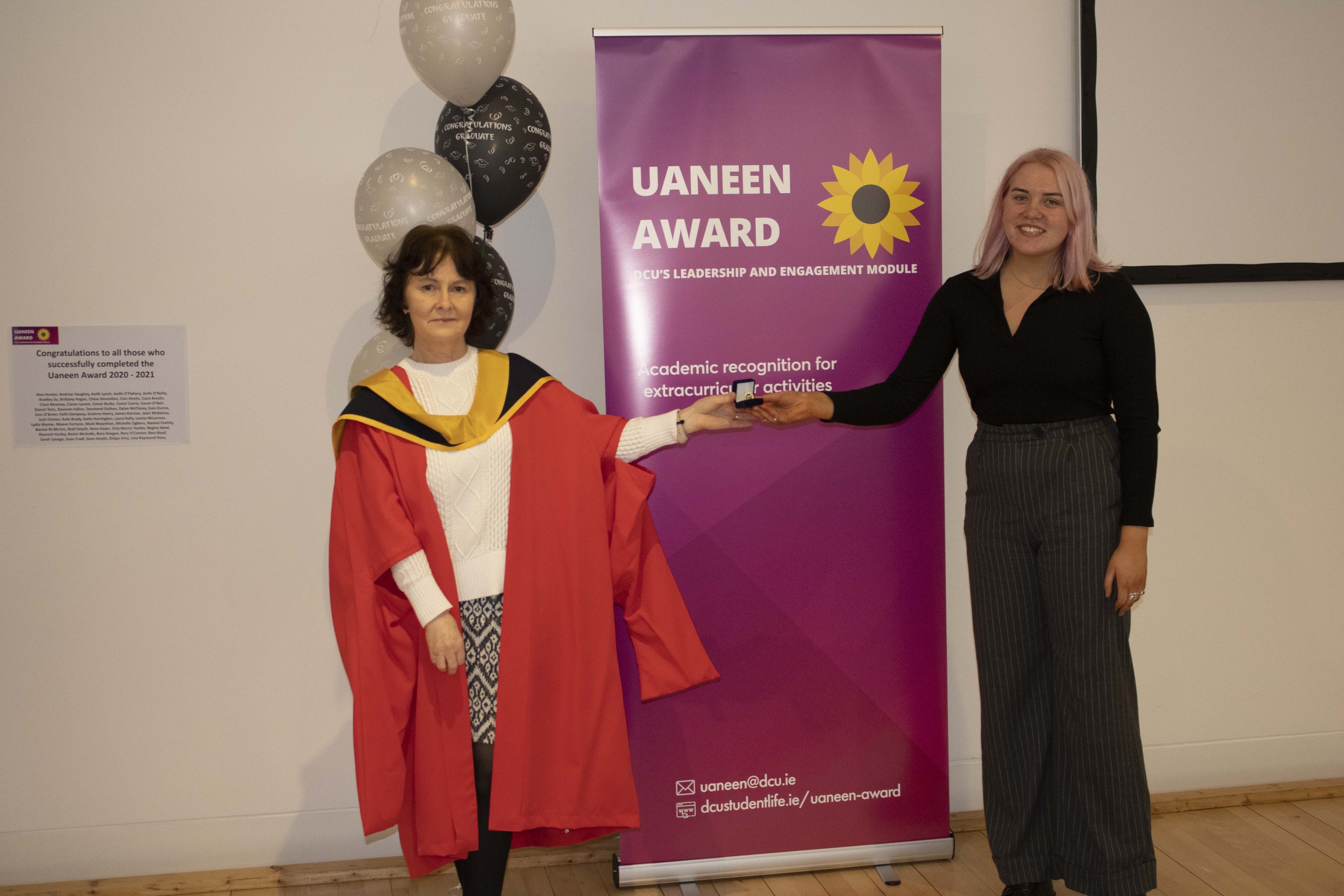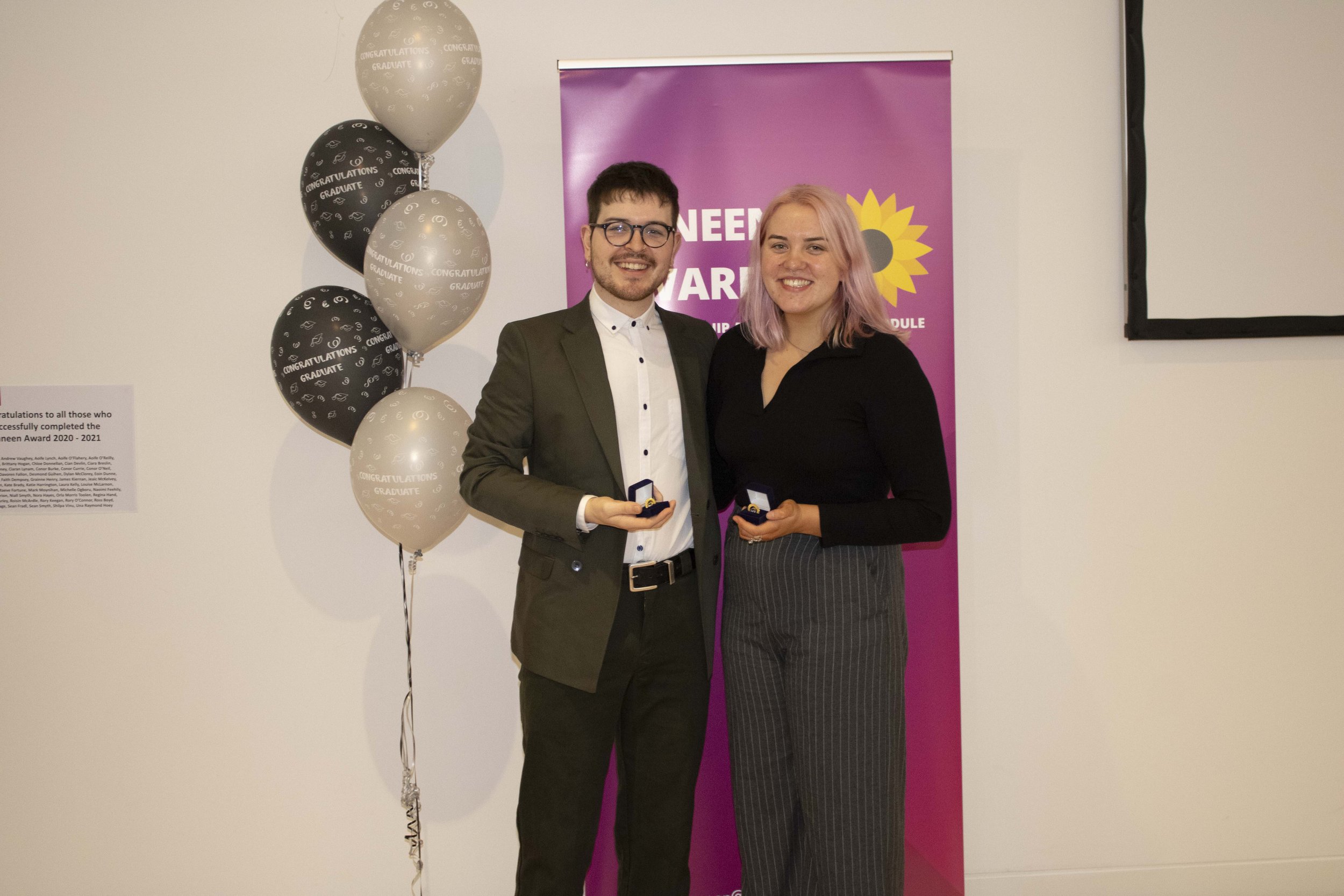Uaneen Award: DCU's Leadership and Engagement Module
If you are a Uaneen Award student looking for a bit more information, this page is for you!
Students are required to attend one compulsory workshop in each semester. Students will submit a Log of Activities, a reflective assessment form and a 2,000 word reflective essay in semester 1. During semester 2, students will submit a 4,000 word reflective portfolio that critically reflects on skills and competencies they have gained through their years of involvement in DCU Clubs and Societies and voluntary work. During the year, students will be expected to attend short tutorials to assist them in writing their portfolios.
+ Uaneen Handbook
+ What is Reflective Writing?
Reflective writing is evidence of reflecting thinking and critical analysis of your own experiences. Reflecting thinking involves:
Looking back at an event or experience
Analysing in-depth the event or experience - trying to explain what happened, how you felt about it at the time, your emotions during the event or experience, other people’s perspective of the event or experience, what you learned from the situation
Thinking carefully about how the event or experienced changed your perceptions and behaviours and how you would apply that learning in future similar events
Reflective writing is NOT descriptive - it should be written from a personal perspective and critically analyse the learning you achieved. Reflection is an exploration of events and focuses on emotions and feelings as an event or experience happened. Reflective writing should consider anxieties, errors and weaknesses as well as strengths and successes.
The Uaneen module expects students to have the ability through reflection to ‘think forward’ and to have an understanding of how their actions and behaviours affect their community involvement and civic interactions now and in the future.
Structuring Reflective Writing There are loads of models that you can use to help you write reflectively. Here is a guide to some of our favourite ones to help you start thinking about writing reflectively:
+ An Example of Good Reflective Writing
I have always been involved in sports from a very young age. Through my involvement with my sport over the years, I have learned many skills that I continue to build upon. One skill I have learned through my sport is time management. When I came to DCU first, I was so keen to get involved in as many clubs and societies I could and I signed up for more than I could manage. I was beginning to have less time for my sport and I realized as the weeks went by that this was impacting on my wellbeing. I was used to physical activity and I felt that not attending regular training was making me feel sluggish and not at my best. I was also finding it difficult to concentrate on my academic work as my commitments to clubs and societies was beginning to take up so much of my time. By Christmas of my first semester, I felt burned out and overwhelmed by college life. I didn’t feel confident doing my Christmas exams as I felt I had stretched myself so thin I couldn’t give proper attention to anything. After Christmas, I made the decision to cut back on the amount of clubs and societies I was involved in and to again begin regular training with my sport. I drew up a schedule for myself and filled in it with my lectures. Then I filled in my training over three nights of the week. I made a commitment to give myself every Sunday off to give myself a chance to rest. Then I decided which society I felt I could dedicate myself to two nights a week. After making my schedule, I felt I was in better control of my time and that I could balance my academics with my social life and feel now that I have a good balance in my life. This makes me feel happier and more in control. Self-reflection- Critically analyse what happened, what you did, what you learned, would you act differently in future in a similar situation, how will your learning influence your future reactions, thoughts and behaviours.
**
Gibbs’ Reflective Cycle
** Gibbs’ Reflective Cycle is designed to help people learn from their experiences and to consider different aspects of that experience. Learning is a continuous experience and that is why the arrows between sections are constant. Some things to consider as you look at each section of the cycle are:
Description - short description of what happened, who was involved, what did you do?
Feelings -how did you feel as it was happening, how did you feel afterwards, how do you feel now? How do you think others involved felt?
Evaluation - What was good about the event or experience? What was negative about it?
Analysis - This is where you reflect on all the positive and negative effects of the experience, what you learned from it, how you feel about what happened, if you adjusted your behaviour or thinking, what skill did you learn as a result.
Conclusion - This is where you critically think about what else you could have done in the situation. You should consider how you would act in a similar situation in future, how you can use your new skill you learned.
+ Description or reflection?
In simple terms, writing is either descriptive or reflective. Descriptive writing will not contain any emotional reactions, thoughts, feelings or any plans for future improvement.
Reflective writing will consider feelings during/after an event or experience, your evaluation of what happened, a conclusion about what you learned about yourself as a result of the event or experience and an action plan for how you would behave differently in a similar future event.
The Uaneen Module is a reflective model and descriptive writing should take up a very small part of your portfolio. To help you get a better understanding of how a reflective portfolio should read, please see the examples of previous portfolios on this page.
+ Sample Portfolio Paragraphs
Example 1 - DCU Drama
As soon as I set foot into the Clubs and Socs fair as a bright-eyed fresher, I knew that I had to join DCU Drama. I had recently discovered my love for performance at my local theatre group in Ballinasloe and having talked to the committee, geeked-out over the show they had chosen and handed over my €4, I knew that this was the group for me. Little did I know that this particular society would be a guiding force in shaping my four years in DCU. It taught me so many competencies I could never have imagined, including decision-making, forward thinking, implementation of goals and community involvement. I loved the people, the culture and the atmosphere of the group and quickly made a large friend group. I was so enthusiastic to be as immersed as I could possibly be with these people that I attended every workshop, get-together and open mic religiously because I felt I really belonged here. To me, I valued how inclusive the society was a group and the sense of comradery, and it was this ethos that I felt most connected to. Therefore, when a committee position opened up, I jumped at it and was delighted to have been elected to the committee. I was confident that I could be elected as I have a real passion and drive for drama, and gladly it showed when I presented my reasons for being elected. 3 months into college, I became DCU Drama’s newest Sponsorship officer and approximately 10 minutes after being elected, was presented with my first crisis. Drama had no sponsors. Not one, not even Dominos. This role now fell to me. I was dumbfounded. Why hadn’t I heard about this problem before? Surely asking the members to reach out to personal connections would have been a good idea? Was I really in charge of the financial sovereignty of the society? This was a situation I hadn’t been expecting to face so early on in my role and the lack of sponsorship was a significant problem for the society. This changed things, and I was a little scared. My nervous excitement quickly turned to determination. My ego flared and self-confidence grew. I am someone who likes a challenge and, even though all of this was so new to me, I wasn’t prepared to let myself, or my society down, and was determined to do my best to get the sponsorship we needed. If anyone was going to do this, I thought, then it may as well be me. To solve the problem of sponsorship, and to impress people I saw as the rock stars of Drama, I committed to raising €4,000 in 8 weeks. In hindsight, this was a ridiculous thing to do and the pressure I felt, first of all to seem enthusiastic, and secondly to impress everyone, put me under severe pressure to achieve. In truth, I was bluffing and very much out of my depth, but seeming confident dissuaded the fears of those who were relying on me. So to secure sponsorship, I had to push myself out of my comfort zone and learn how to implement my goals through competent decision making. I was so determined to be seen as a capable organiser that I made promises I knew would be hard deliver at that time. But I wanted to prove my worth to this group because they are so important to me. I am the type of person that sets a goal and I will do whatever I can to achieve it because I want to prove to myself that I can do it, and also because I know others are relying on me. This can weigh heavily on me, particularly when I realise that I have bitten off more than I can chew, but I can be too proud to step back or admit I can’t do something. Looking back, I put a lot of pressure on myself to achieve but I managed to achieve my goals. This learning experience surprised me because I realised that I like to work under pressure, I want to aim high and do my best to achieve what I am trying to set out to do – the manic sense of trying to get the sponsorship showed me that I enjoy that kind of energy and it spurs me on. This experience proved to me that I can do it if I apply myself. Time and time again my selfconfidence and true belief that I could do anything meant that I took on more and more responsibility. In many ways, this made me who I am today.
Example 2 - Enactus
During my first Clubs & Socs Week as a fresh faced first year, I was completely overwhelmed and taken aback by the number and variety of different extracurricular activities that were on offer to me. From Rugby, to Japanese Soc, to MPS, to RAG, to Amnesty, to Snowsports; I was sold. Although this week was my first taster of society life, it wasn’t until midway through October that I came across the society that I would be most actively involved in for my three years of DCU. The DCUSU were doing a Snapchat showcase of what different societies had to offer during this week, and thank God they did, or I would never have found out about HeadstARTS, and in turn, Enactus. As soon as I showed a bit of interest, Enactus took me in as one of their own, even though I didn’t have the slightest clue what they were or what they did! Three years on, I have sat on the committee as Ordinary Member and now Secretary. I have been lucky enough to represent DCU and Ireland twice so far on a national and international level. We have won two National Competitions in a row and have travelled to the Enactus World Cup in Toronto, Canada in 2016 and London, England in 2017. Representing my university and my country are opportunities I am so incredibly grateful for, and are experiences I will never ever forget, but the real personal development stemmed from the work we did and the social enterprises we created. It’s not the 'National Champion' titles that matter, but the impacts we had and the people we empowered along the way. I was mainly involved in the running of HeadstARTS, which provides weekly art, drama and dance classes for people with intellectual disabilities. I absolutely fell in love with this project. Working with people with IDs is not easy, and has taught me a great deal about patience and communication skills. Our members have a range of different abilities and disabilities, with some being completely non-verbal. Knowing what works for them and how to communicate with them is something that I have become very confident in. I am in no way a professional in this field, but I have built relationships with members old and new, and now know how to effectively communicate with them to the best of my ability, and how to provide a safe and welcoming environment for them to come each week to channel their inner creativity and to most importantly have fun. I will go into further detail on HeadstARTS a little later on. On a whole, Enactus has given me some of my best friends, and has truly opened my eyes to the world. I have worked with ex-prisoners on our Second Scoop project, with asylum seekers on our Well on the Way and Threads projects and with people with intellectual disabilities on our HeadstARTS and Camphill Crafts projects. Enactus focuses on social issues and strives to create a better world for all. Meeting these people, hearing their stories and seeing how best we can help them, has taught me an inordinate amount about empathy. I believe my ability to understand and share the feelings of another has grown so much stronger having worked with all of these incredible people. Enactus also provided me with so many opportunities to network with business leaders and students from around the world. Through Enactus, I learned how to best present myself, and how to network with professionals.


